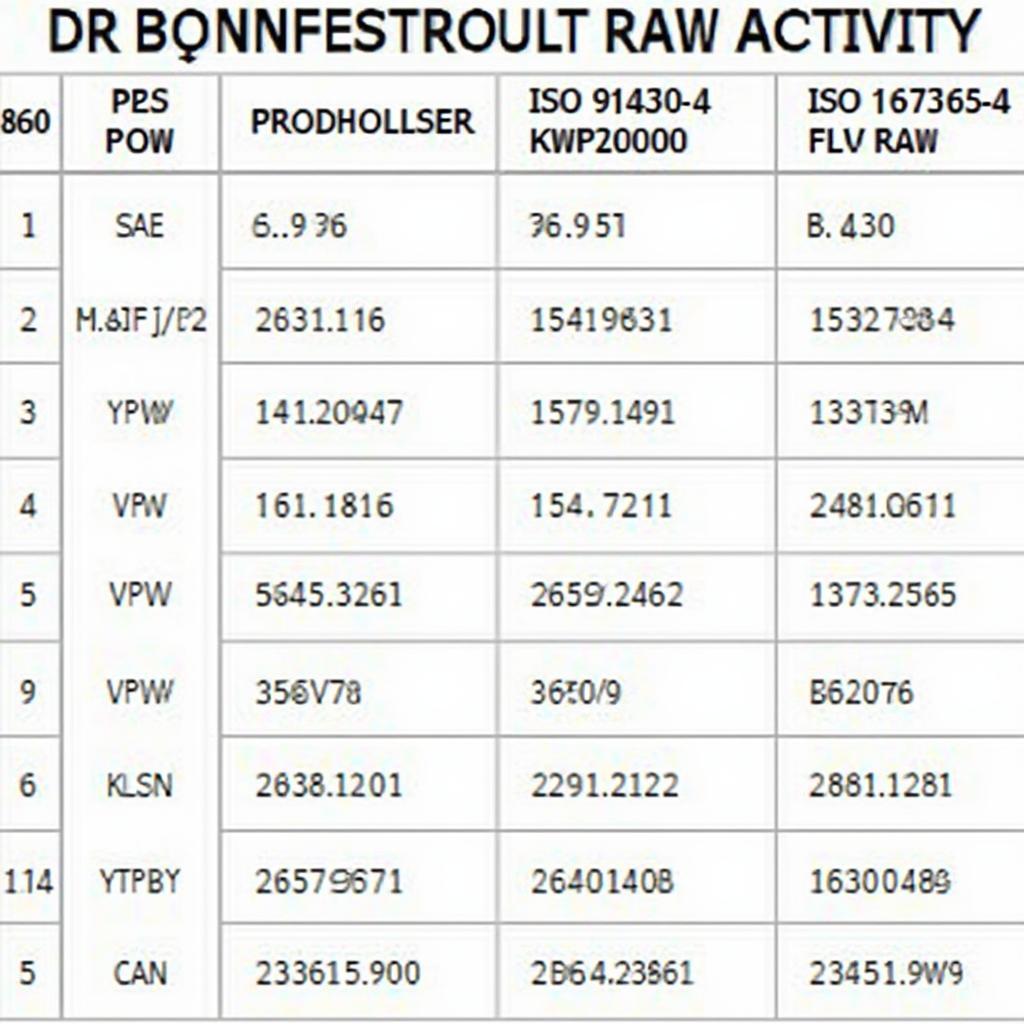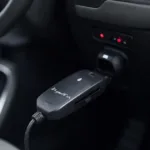The OBD2 port, often found under the driver’s side dashboard, has become a ubiquitous feature in modern vehicles. It serves as a gateway for accessing your car’s computer and retrieving valuable diagnostic information. But are all OBD2 ports created equal? This is a common question among car owners, especially when dealing with different vehicle models and diagnostic tools.
Understanding the Basics of OBD2 Ports
Before diving into the specifics, let’s clarify what OBD2 is. OBD stands for On-Board Diagnostics, and OBD2 is the second generation of this technology. Mandated in the United States for all vehicles manufactured since 1996, OBD2 standardized the way cars communicate diagnostic data.
The OBD2 port, also known as the DLC (Data Link Connector), is a 16-pin female connector. While all OBD2 ports share this basic physical design, there are subtle differences that can affect compatibility with diagnostic tools.
Variations in OBD2 Protocols
Here’s where things get a bit more complex. While the physical port is standardized, the communication protocols used by different car manufacturers can vary. These protocols dictate how the diagnostic tool interacts with the vehicle’s computer.
Some of the common OBD2 protocols include:
- SAE J1850 PWM: Primarily used by Ford vehicles.
- SAE J1850 VPW: Commonly found in GM vehicles.
- ISO 9141-2: Often used in European and Asian vehicles.
- ISO 14230-4 KWP2000: Another protocol frequently used by European and Asian manufacturers.
- ISO 15765-4 CAN: The most recent and widely adopted protocol, found in most modern vehicles.
The protocol used by your vehicle depends on its make, model, and year of manufacture. Using a diagnostic tool that doesn’t support your car’s specific protocol can result in communication errors or an inability to retrieve data.
 OBD2 Protocols Chart
OBD2 Protocols Chart
Physical Differences and Adapters
While rare, there can be slight variations in the physical pin assignments within the OBD2 port itself. Some manufacturers might use certain pins for specific functions not covered by the standard OBD2 protocols.
In such cases, you might need an adapter cable to connect your diagnostic tool successfully. These adapters usually have a standard OBD2 connector on one end and a modified connector on the other to match the vehicle’s specific pin configuration.
OBD2 Software and Compatibility
Beyond the physical port and protocols, the software used by your diagnostic tool also plays a crucial role in compatibility. High-quality OBD2 software is regularly updated to support a wide range of protocols and vehicle models.
When choosing an OBD2 scanner or software, ensure it explicitly states compatibility with your vehicle’s make, model, and year. Reputable manufacturers provide compatibility lists or search functions on their websites to help you make informed decisions.
FAQs about OBD2 Port Compatibility
Q: Can I use any OBD2 scanner on my car?
A: While all OBD2 ports share a standard 16-pin connector, the communication protocols used can vary. It’s essential to choose a scanner that supports your vehicle’s specific protocol and model year.
Q: What happens if I use an incompatible scanner?
A: Using an incompatible scanner can result in communication errors, inability to retrieve data, or even potential damage to your car’s computer system in rare cases.
Q: How do I know which protocol my car uses?
A: You can usually find this information in your vehicle’s owner’s manual. Alternatively, online resources or contacting your car manufacturer can provide this detail.
Q: Are there universal OBD2 scanners that work with all cars?
A: Many scanners are designed to support a wide range of protocols, making them compatible with most vehicles. However, it’s always best to verify compatibility before purchasing.
Conclusion
While the question “Are all OBD2 ports the same?” might seem straightforward, the answer is more nuanced. While the physical connector is standardized, variations in communication protocols, pin assignments, and software compatibility require careful consideration when choosing an OBD2 scanner or software.
By understanding these factors and doing your research, you can ensure seamless connectivity and access valuable diagnostic information from your vehicle.
carly obd2 review provides a comprehensive analysis of a popular OBD2 solution, while best obd2 bluetooth adapter iphone offers guidance for iPhone users. For those interested in exploring software options, obd2 usb diagnostic software provides valuable insights. Additionally, cobb obd2 cable delves into specialized cables for specific vehicle applications. Lastly, obd2 reader china explores the world of OBD2 readers sourced from China.
Remember, having the right tools and knowledge empowers you to take control of your vehicle’s diagnostics and maintenance.
